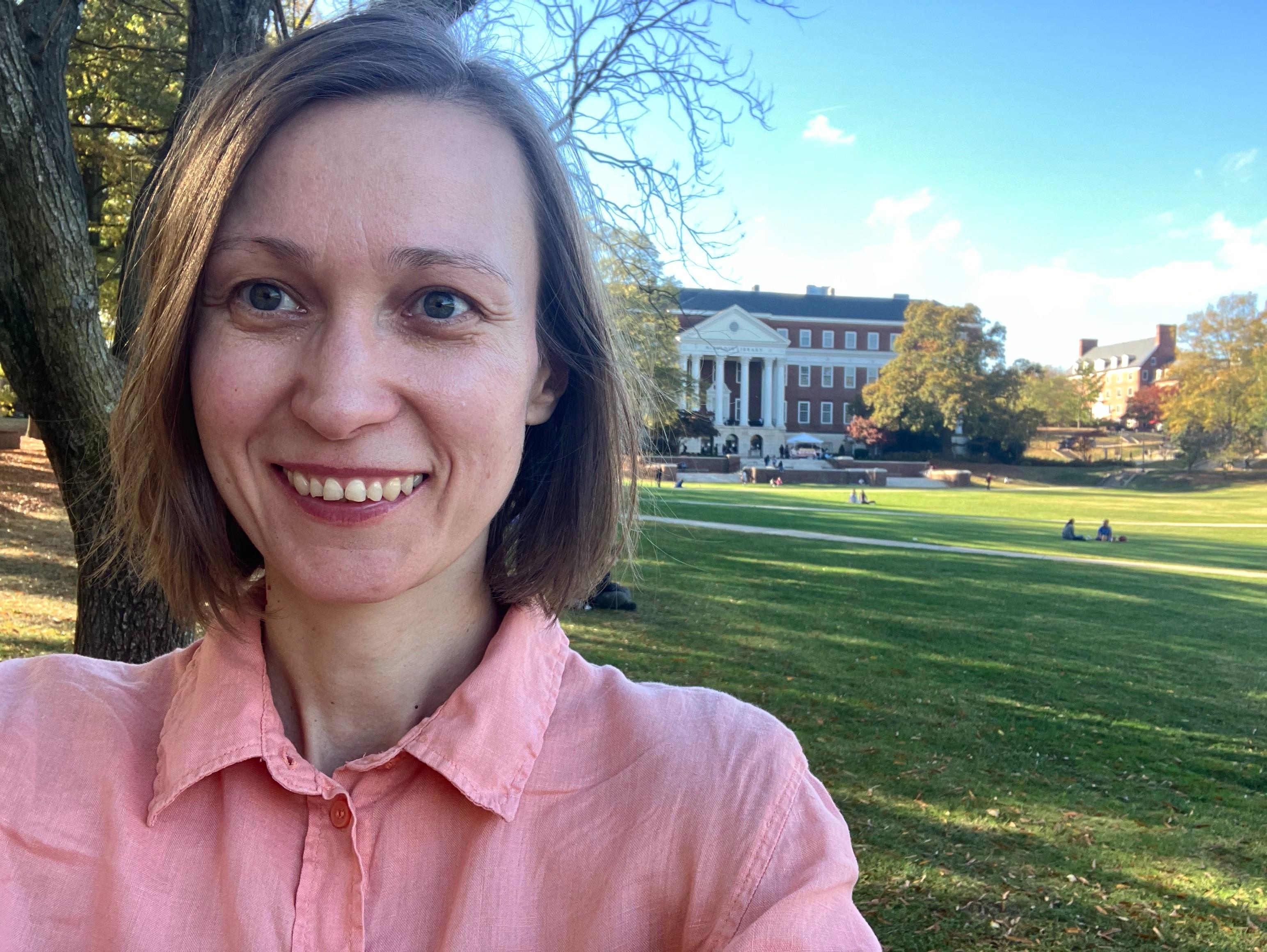
1. Describe your field and the scope of your Fulbright project. How would you explain it to someone who is unfamiliar?
I am a historian specializing in 20th century history of Poland and the United States as well as in transnational history. I have also been trained in social sciences and cultural studies and my research tends to be interdisciplinary. I am an associate professor at the University of Warsaw in Poland and in the 2024-25 academic year I am affiliated with the Department of History at UMD as a Fulbright scholar.
I have been awarded the Fulbright Senior Award for ten months (Sept. 1, 2024 – June 30, 2025) and during this time I am pursuing my project on the transnational history of the Polish anti-abortion movement during the last decades of communism and after the democratic transition (1970s-1990s). Abortion was legal in communist Poland and in the wake of the 1989 democratic transition it became criminalized. One of the factors that contributed to this change was the engagement of the Polish “right to life” movement that formed in the 1970s, and in the ensuing decades established and maintained contacts with American “pro-life” activists as Father Paul Marx, Jack Willke, or Bernard Nathanson. Since the 1970s, the U.S. constituted the hub of the transnational anti-abortion movement, and thanks to the exchanges and contacts between Polish and American activists, Polish “right to life” movement became a part of transnational anti-abortion engagements.
I am devoting the ten months of my Fulbright program mainly to library and archival research in institutions in the DC area as well as in other parts of the United States. Relying on archival documents, the press, and published primary sources as memoirs, I am researching mutual transfers of people, ideas, and material resources (as anti-abortion films or photos) between Poland and the United States. I examine how anti-abortion activists and ideas traveled in the past and how they were received, debated, transformed, and recirculated, influencing politics, culture and society in the U.S., in Poland, and transnationally.
2. Who are the communities that will be impacted by your work?
My work will impact primarily the scholarly communities: historians and sociologists who study social movements as well as the history of communism and religion. I hope it will be important for scholars of reproductive health and reproductive rights. Besides these scholarly communities, my findings might be of interest to reproductive rights activists and people engaged in influencing abortion policies.
3. How and why did you choose UMD?
I chose UMD for several reasons: because of its scholarly excellence, cooperation with my Fulbright host Professor Piotr Kosicki, as well as proximity to several libraries and archives that hold primary sources relevant to my project. The UMD Department of History affiliates several prominent scholars who specialize in the history of modern Europe (including Eastern Europe) and the modern United States. Piotr Kosicki’s academic focus on transnational history of modern Europe and its global implications, as well as the history of religion and the Catholic Church, is of great value for my research. It is helpful to frame my project and to tease out its global importance and religious underpinnings. Having the Library of Congress, the National Archives, and the archives of the Catholic University of America at hand, allows for research in primary sources that shed light on the American anti-abortion movement and its engagements in Poland.
4. Why is international research important to you?
International research is important for me because of the scope of my project that pertains to transnational history, scholarly exchanges with people from other countries (the U.S. in particular), as well as due to the access to the primary source material. Pioneering science today, including humanities and social sciences, is international and is forged by contacts and cooperation with people from other countries and cultures.
5. Will your research collaboration continue past Fulbright?
Yes, I plan to continue my collaboration with Piotr Kosicki and other U.S.-based scholars who I will meet during the conferences and my research visits. I hope they result in collaborative publications and in new projects.
6. What is it like as an international Fulbright scholar to integrate into the UMD community?
The UMD community has been very hospitable to me, lending a helping hand in any instance when I needed it. The chair of the Department of History Professor Ahmet Karamustafa and its administrative staff from the first moment have welcomed me very kindly. I value the contacts with the staff of the McKeldin Library and it has been one of my favorite spots on campus to work. I have also had a chance to take part in an event organized in September by International Student and Scholars Services where I met other Fulbrighters as well as UMD faculty. I hope to continue this integration in the following months, maintaining my contacts and meeting new people.
7. What cross cultural knowledge do you gain from participating in a program like this?
Participation in a program like Fulbright gives a unique opportunity to gain cross-cultural knowledge in several spheres and in multiple aspects. I came to the U.S. for the Fulbright program with my whole family, including our dog, and I am learning a lot about such elements of American life as education (my daughter became a sixth-grader in an American middle school) or pet policies and customs. We have taken part in Halloween and have watched Diwali celebrations. I have had the unique experience to observe the 2024 American elections and to learn on the ground about the involvement of the people in politics and about their reactions to the election outcomes.
